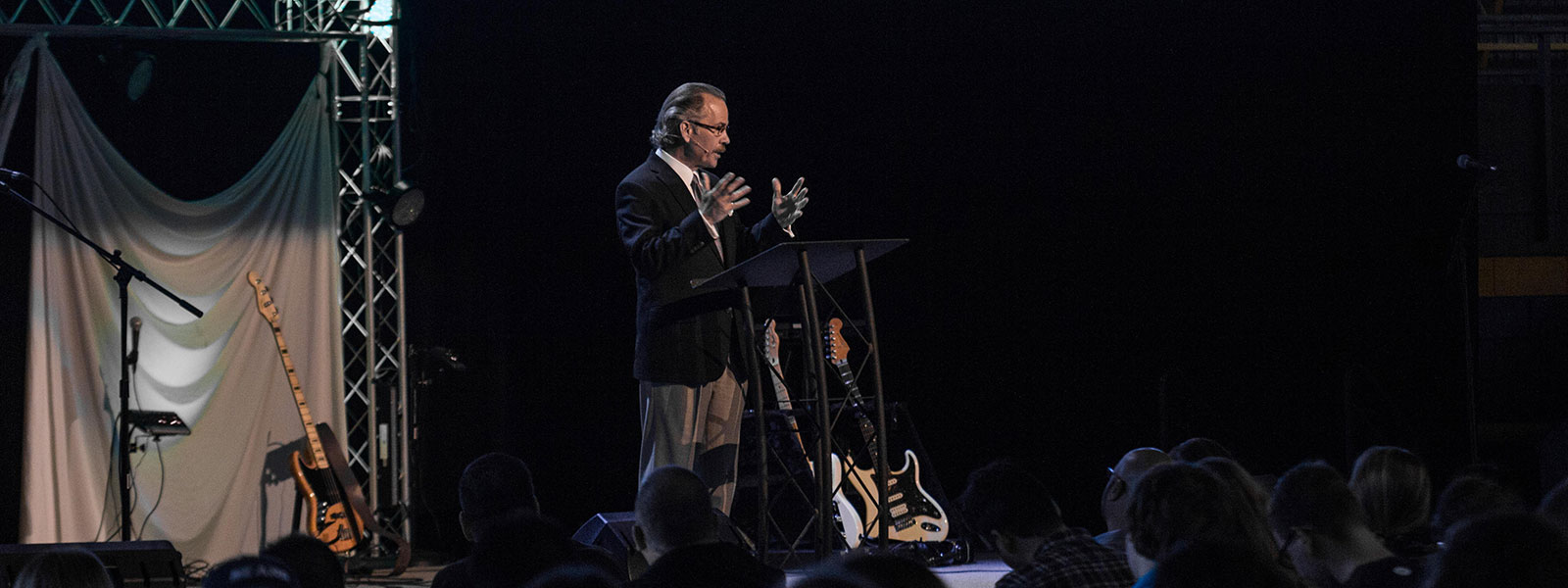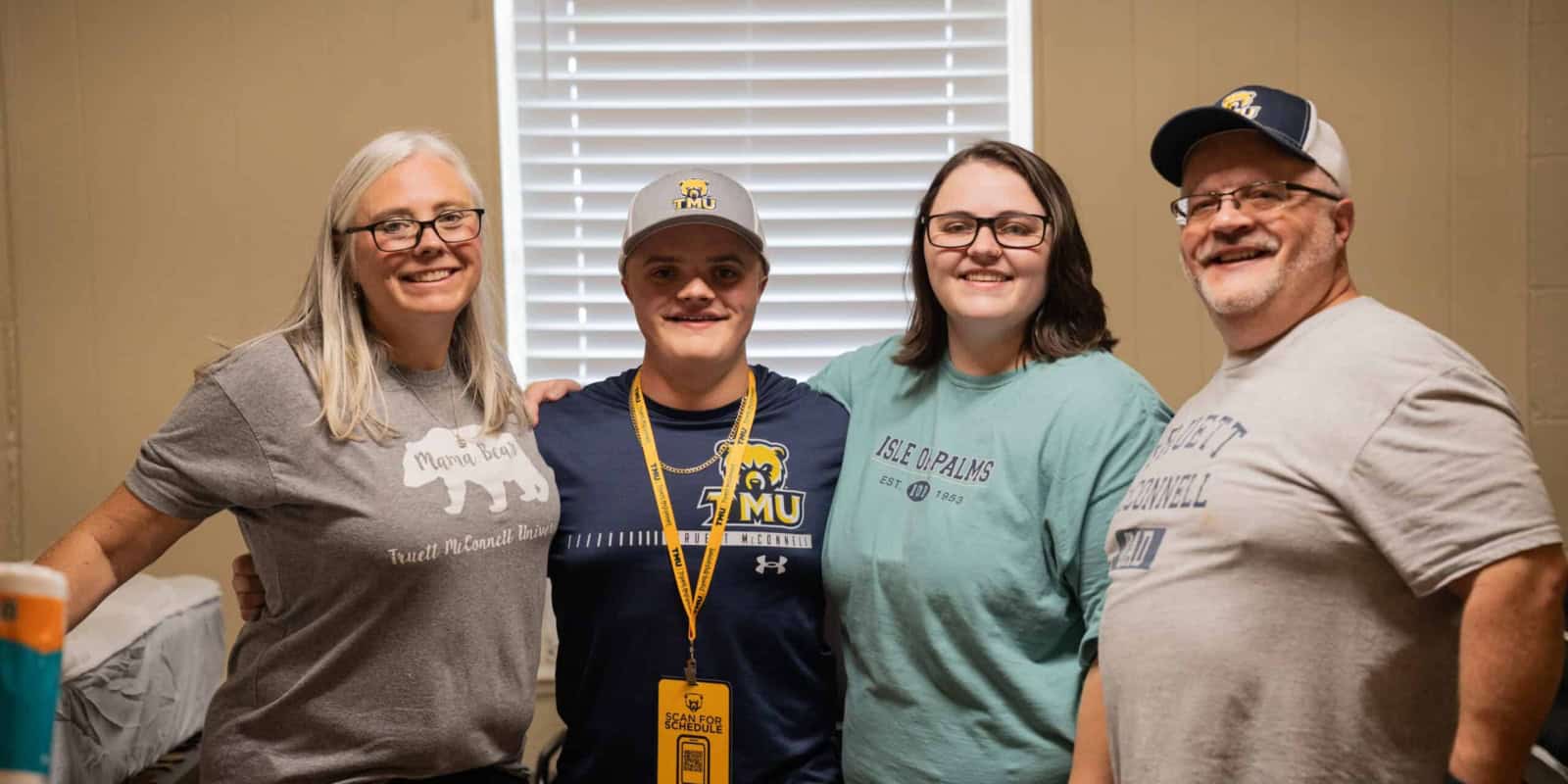by Bailey Jarnagin
CLEVELAND, Ga. (TMNews) – Rev. Ronnie Rogers, pastor of Trinity Baptist Church in Norman, Okla., and author of Reflections of a Disenchanted Calvinist: The Disquieting Realities of Calvinism, took the pulpit to discuss the controversial topic of Calvinism at Truett-McConnell’s weekly chapel service, October 22.
Created in the image of God
The Reformed views of Calvinism are surging throughout the Southern Baptist realm and creating dissension between believers. Rogers aimed to answer a question that is common today in the minds of many: “Did God choose to give man the freedom to choose?”
Rogers made the statement that, if one were to examine the Scriptures without theological presuppositions: “The clear, ubiquitous message of the word of God is that He has endowed man with the ability to choose between real options, and He has conditioned whether He will bless or judge based upon man’s choice.”
“This is a component of what it means to be created in the image of God, and this perspective is the only one which consistently communicates that God redemptively loves all of His creation,” Rogers continued.
It is evident in Genesis 1:27 that “God created man in His own image.” Rogers emphasized that man possesses certain attributes of God, one of which is the ability to choose because of free will.
Rogers referenced Genesis 2 as containing “the dynamic of choice.” When God placed Adam in The Garden of Eden, God instructed Adam to “not eat from the tree of the knowledge of good and evil, for when you eat from it you will certainly die.”
Rogers said the conclusion can be drawn that, “According to Calvinism, God did desire for man to sin…if He did not, He would have created a different environment.”
Consequences of our choices
Because of the way God presented the tree of the knowledge of good and evil and the subsequent results of Adam and Eve’s disobedience, Rogers explained: “There is a choice to be made and each choice has a consequence. The consequence is conditioned upon the choice that is made.”
Rogers discussed “the dynamic of the Gospel encountered” in John 12:35-36: “So Jesus said to them, ‘The light is among you for a little while longer. Walk while you have the light, lest darkness overtake you. The one who walks in the darkness does not know where he is going. While you have the light, believe in the light, that you may become sons of light.”
Choosing God’s forgiveness
Rogers explained further: “The light of the Gospel enables one to receive forgiveness, but it does not secure one’s forgiveness…one still must act.”
The willful act of choosing God is necessary in order to receive salvation. In John 12:35-36, Jesus tells those who are before Him what will befall them; those who choose righteousness will become sons of light, but those who deny righteousness will be overtaken by darkness.
There are two options, one profitable and the other detrimental. Rogers pointed out that “in this moment [of hearing the Gospel] it is indeterminate what they are going to do.”
The importance of sharing the Gospel with all
Rogers reminded TM students of the urgency of the message of the Gospel and the necessity of sharing it with all. He emphasized the brief extent of time in which the Gospel can be shared before eternity is met head-on.
For those adhering to a Calvinistic belief system, there is no urgency in sharing the message. “The passing of time would not change the status of anyone,” Rogers said.
If abiding by what is written in John 12:35-36, it is of the utmost importance to share the Gospel with anyone and everyone so that there is ample opportunity for listeners to choose to accept God’s gift of salvation.
“It is true Satan blinds people to the gospel,” Rogers concluded. “The darkness is waiting portentously, but not controllably…the Gospel overcomes.”
###
Bailey is a senior English major and a freelance writer for the college.
Photo/Adam Roark, Graphic Designer
Return to News Archive
